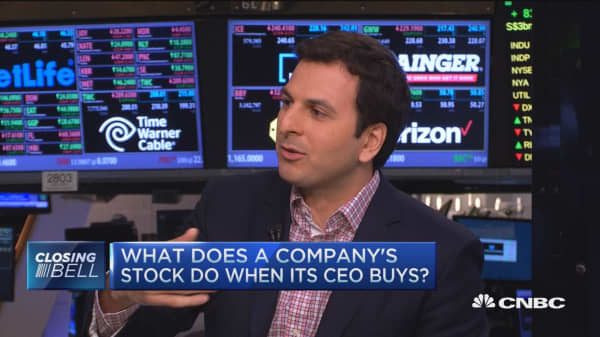Next time you see an executive invest in their own company, it might pay to follow suit.
Last week, United Continental Holdings announced that CEO Oscar Munoz had bought $1 million worth of the company's stock. Similarly in February, JPMorganChase CEO Jamie Dimon bought $26 million worth of his company's shares — and he's seen a 20 percent return since then.
A broader look at the data suggests that a regular investor could actually make money by following these CEO purchases.
There are a lot of ways to slice the data, because CEOs are buying stock all the time. But there was often a decent stock jump shortly after a CEO purchase.
Since 2003, there have been more than 200 different instances of CEOs buying at least $1 million of their own company's stock. The data come from filings with the Securities and Exchange Commission, listed at openinsider.com. Filtering out out some penny stocks and other aberrational purchases, what was left showed meaningful jumps:









